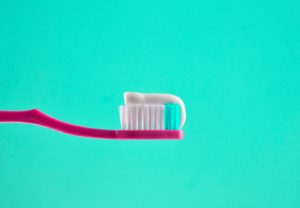
If you’ve just received porcelain veneers, you’re probably pretty thrilled about the look and feel of your new smile. However, now it’s a simple matter of keeping your new pearly whites looking their best; but this is often easier said than done! And when it comes to maintaining the integrity of your porcelain veneers, even the little things matter—such as what toothpaste you use to keep them clean! Keep reading to learn more about which toothpastes are ideal and which you should avoid when it comes to veneers.
Is There a Toothpaste That’s “Best” for Cleaning My Veneers?
Simply put, the type of toothpaste that you use for brushing your porcelain veneers can make an enormous difference in the effectiveness and the longevity of the treatment. Even though there isn’t some magic, essential toothpaste that you need to search far and wide for, there are a few things you want to consider when perusing the toothpaste shelf at the store.
You want something gentle that isn’t formulated for whitening teeth. This might seem counterintuitive, but generic toothpastes often contain whitening agents such as hydrogen peroxide—and even though these toothpastes might seem like a good idea for your veneers, you should steer clear of them. Certain types of whitening agents can damage the very structure of your veneers, and even if you have stained natural teeth that are adjacent to your veneers, you should still avoid treating them with these toothpastes in order to protect your veneers.
You also want to make sure that the toothpaste you’re using is non-abrasive. Many toothpastes contain abrasive agents, such as baking soda, to help remove plaque and polish the teeth. Unfortunately, abrasive toothpastes can scratch the surface of porcelain veneers, potentially ruining their shine and texture.
Does My Toothbrush Also Matter?
Of course, it won’t matter which toothpaste you select if you’re not pairing it with a suitable toothbrush! Once you’re able to snag the right type of toothpaste for your veneers, you should consider pairing it with a soft-bristled toothbrush. These brushes are designed with your teeth in mind, and they’re much gentler on your enamel!
You should also be sure to employ a proper brushing method; hold your brush at a 45-degree angle to your gumline and apply light pressure. Heavy-handedness, even with the right toothbrush and toothpaste, can cause damage—so if you’re squashing the bristles against your gums, ease up! Take your time and use small, circular motions along each surface of every veneer. Brush twice every day for two minutes each time, and don’t forget to floss.
Most toothpastes have all of their ingredients listed on the packaging, so it’s in your best interest to check a particular product beforehand to ensure that it’s suitable for you. Your dentist might also be able to provide or suggest toothpastes for use on your veneers. But if it’s up to you, non-abrasive gel toothpastes free of whitening agents are the way to go!
About the Author
Dr. Robert McVety has proudly served patients and families in the Falmouth, ME area for several years. Dr. McVety received his dental doctorate from the University of Connecticut School of Dental Medicine and is an active member of several professional organizations including the American Dental Association. His practice is pleased to offer a wide range of services including several cosmetic options. To schedule an appointment, please contact the practice’s website or give them a call at (207) 517-7008.
